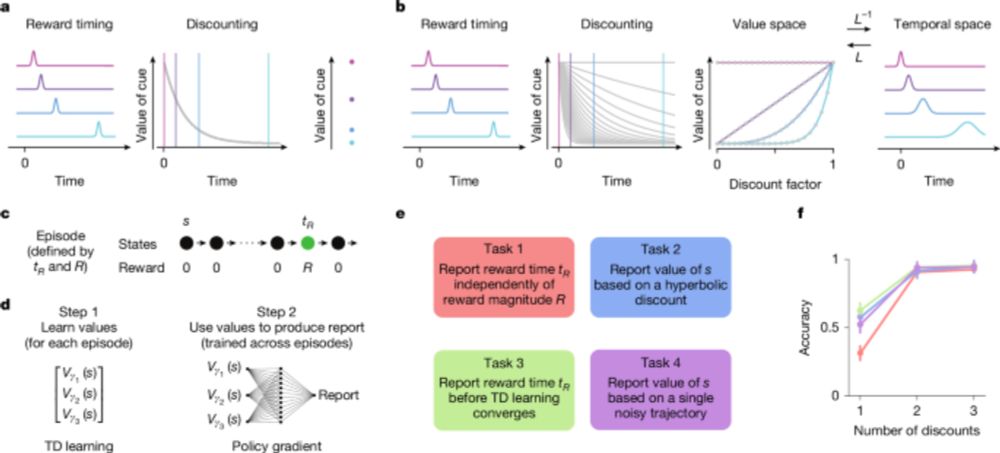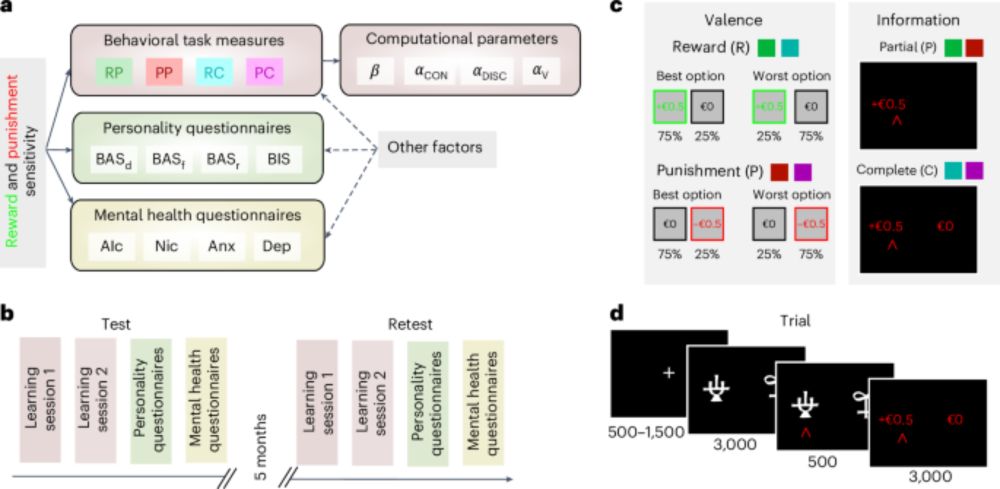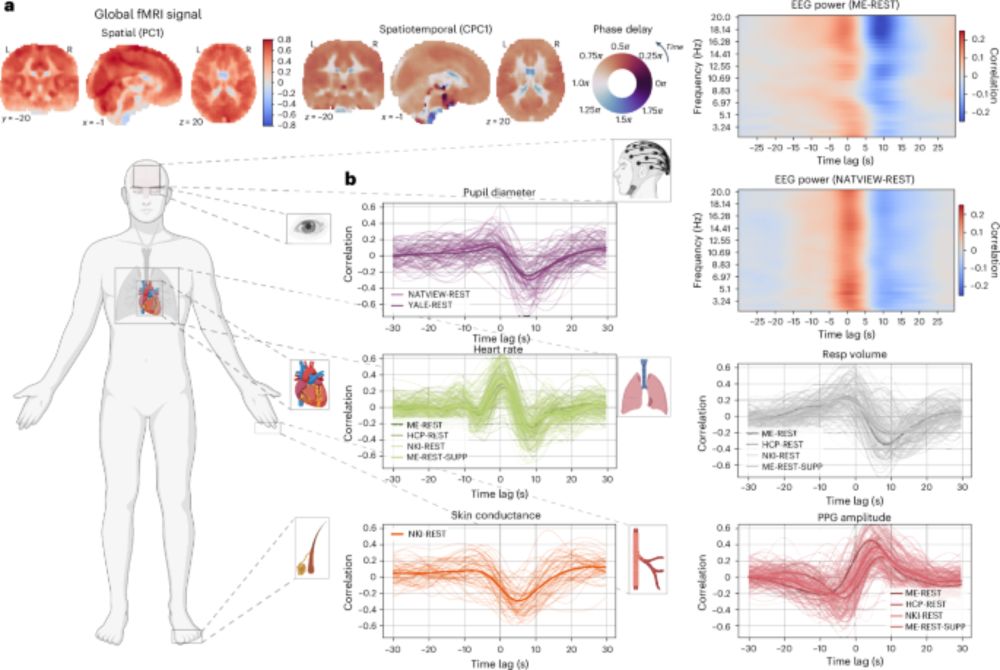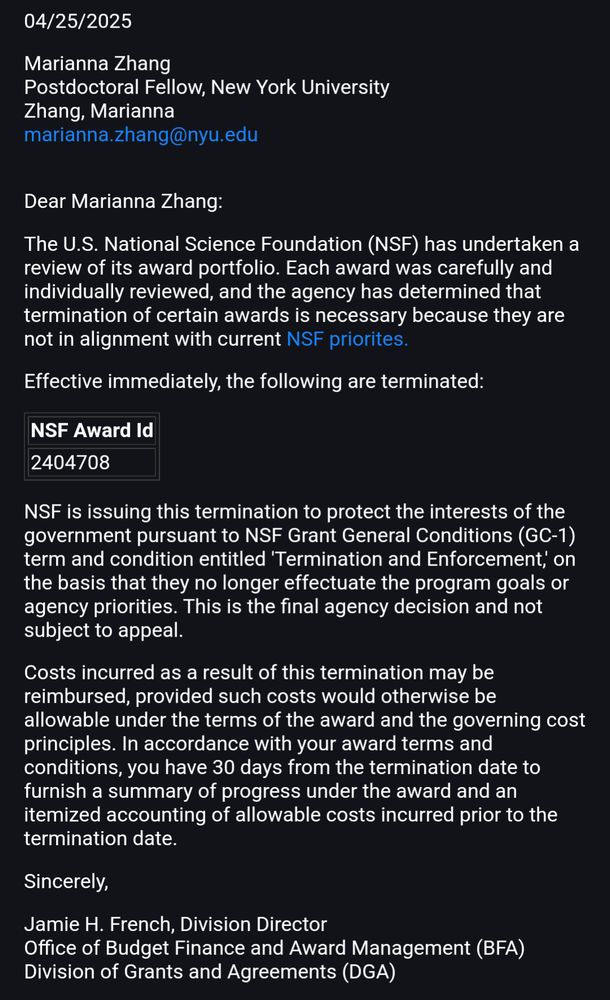
Really interesting work by Bakhurin and colleagues challenging the reward prediction error hypothesis of dopamine:
www.nature.com/articles/s41...
I love this figure which both echoes and undermines the famous figure from Schultz et al. (1997).
@ryanypsych.bsky.social
Psych PhD @ Stanford Affect, motivation & psychopathology in the brain Twitter: @RyanYAN_98

Really interesting work by Bakhurin and colleagues challenging the reward prediction error hypothesis of dopamine:
www.nature.com/articles/s41...
I love this figure which both echoes and undermines the famous figure from Schultz et al. (1997).
Add me please, thanks Uma!
05.10.2025 20:30 — 👍 1 🔁 0 💬 1 📌 0
Online Now: Cognitive modeling of real-world behavior for understanding mental health
26.09.2025 12:40 — 👍 37 🔁 15 💬 0 📌 2The answer is yes! But the effect sizes were not huge. We argued that the utility of online RL tasks was not to replace EMA or clinical surveys, but to probe the mechanisms of affective variability.
Check out the preprint here! 🤩
osf.io/preprints/ps...
We used a Bayesian model to parse affective variability into:
⚡ noise (reactivity to recent rewards)
🌊 volatility (sustained responses to past rewards)
We asked whether affective noise and volatility in the RL task distinctly map onto their counterparts in EMA.
New preprint alert with @mikebrowning.bsky.social
and Chamith Halahakoon!
People have been using computer-based reinforcement learning tasks with affect probes. But to what extent do they reflect real-life affective experience? We tested this with 3 weeks of EMA + RL tasks in 339 participants.
@benhayden.bsky.social
@tyrellturing.bsky.social
@jmgrohneuro.bsky.social
@pessoabrain.bsky.social
I see a lot of talk on here about how we should avoid
"x does y" talk because the brain is "a dynamic, reverberant, reciprocally interconnected system".
But this does not follow.
A thread...
New preprint from the lab! 🧠
Led by Juliana Trach, w/ Sophia Ou
Using fMRI, we discovered evidence for time-sensitive reward prediction errors (RPEs) in the human cerebellum.
Builds on, and extends, recent work in both rodents and NHPs

This is an exquisite demonstration of using intracranial recordings in humans to validate our findings that amygdala neurons encode the value of exploring in NHPs.
www.nature.com/articles/s41...
Ok, reinforcement learning fans: RL is great, but what do we do when there's no obvious reward from the environment? What about perfecting a golf swing or a foxtrot or a musical performance? We may have an answer. A tale of 🐦 🎶 + 🧠. 🧵1/ #bioacoustics #prattle 💬 #neuroai #compneuro
24.07.2025 14:29 — 👍 79 🔁 28 💬 4 📌 1
Two papers out today on RL in the dopaminergic neurons of the midbrain of mice (one from McGill's new PI @paulmasset.bsky.social). Both papers demonstrate heterogeneity in discount factors!
www.nature.com/articles/s41...
nature.com/articles/s41...
🧠📈 🧪 #NeuroAI

New in Nature MentalHealth! with Vrizzi, Najar, Lemogne, and @mael-lebreton.bsky.social
We tested whether behavioural and RL-based model parameters are test-retest reliable and predict mental health traits.
The result? Not really.
A cautionary tale for comp. psychiatry
doi.org/10.1038/s442...

Widespread cofluctuations in the low-frequency range between resting-state global fMRI signals, EEG activity, and a host of peripheral autonomic signals spanning cardiovascular, pulmonary, exocrine and smooth muscle systems 🧪🧠
www.nature.com/articles/s41...

email starting, "The U.S. National Science Foundation (NSF) has undertaken a review of its award portfolio. Each award was carefully and individually reviewed, and the agency has determined that termination of certain awards is necessary because they are not in alignment with current NSF priorites."
yesterday, my postdoc funding (salary and research funds) was cancelled by the National Science Foundation, effective immediately. I received the same generic, vaguely threatening, typo-ridden email as many of my colleagues who have had their awards terminated recently. (1/n)
26.04.2025 12:24 — 👍 605 🔁 276 💬 41 📌 28Excited to see this in "print"! Work led by @jinke.bsky.social decoding emotional arousal across fMRI movie datasets!
17.04.2025 15:44 — 👍 12 🔁 4 💬 0 📌 0Epic recordings of model-based and model-free learning signals from Kennerley lab (Bruno Miranda). Now at @elife.bsky.social
doi.org/10.7554/eLif...